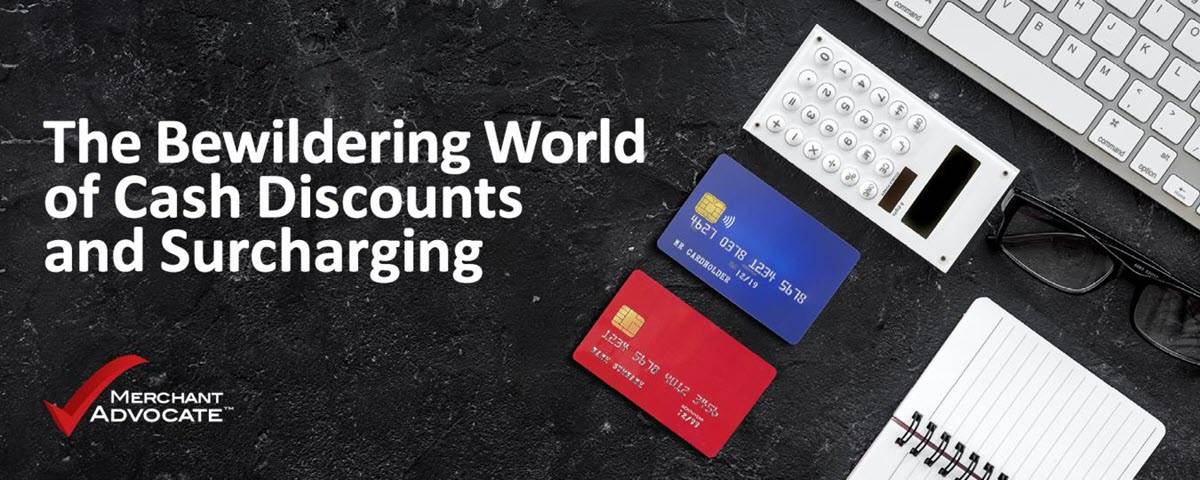Blog: Cash discounts and surcharging
August 15, 2024

By Merchant Advocate
Credit card surcharging and the related programs have been a hot topic over the last few years and are only growing hotter. Some see the practice as a way of offsetting the cost of doing business with credit cards, while others consider it an undue toll levied on loyal customers and clients. The guidelines and laws surrounding these programs are unclear, ever-changing and vary by state and area. Regardless of geographic location, there are important tax implications, so it is critical that you are aware which of your clients are surcharging and receive the required paperwork to avoid an audit.
Traditional Surcharge Program
A traditional surcharge program adds a fee to all credit card transactions — excluding debit. The first challenge here is how to distinguish debit from credit. Some businesses assume that a debit card is any card processed with a personal identification number (PIN). That is not the case. PIN or not, a debit card is any card that takes money directly from a consumer’s bank account. This represents around 50% of all transactions.
The consumer may tell the merchant to run their debit card “as a credit card” without the PIN — regardless, it’s debit and illegal to surcharge under the Durbin Act. The only way to run a true surcharge-compliant program is to use a credit card machine or point of sale system that determines if the card is debit or credit before applying the fee. To complicate the issue further, some industries are tied to specific point of sale (POS) systems that do not have this ability. This is particularly true for those in the restaurant and hospitality sectors.
Cash Discount Program
Cash discount programs were originally designed as a way for processors to creatively add a service fee to all card transactions and then offer a discount for those paying by cash. Essentially, they changed the name of the program from “surcharge” to “cash discount” and added a fee, just to take the fee off. This is really a surcharge program in different packaging, which means it’s also illegal to offer a cash discount on a debit card. A true compliant cash discount program lists the actual price and takes a discount off the listed price if the customer pays with cash.
Compliance Regulations and Tax Implications
The practice of surcharging has an interesting track record in the state of Florida. Though a statute disallows surcharging on credit card transactions, this ban was found to be unconstitutional and unenforceable nearly a decade ago hinging on language finding surcharges to be analogous with discounts.
However, when implementing a surcharge program within Florida, proper protocol is compulsory. This includes the retailer registering the surcharge and disclosing it to customers in the form of signage, and on their receipts. And, like many other jurisdictions, the Sunshine State prohibits businesses from charging more than their processing costs (usually 3-4%).
To compound the confusion, the tax implications are also a bit fuzzy. Companies must let their merchant acquirer and relevant card networks know they are planning to start a surcharge program — and they will need 1099K paperwork from their processor come tax season. If the money accrued from surcharging isn’t reported correctly, there’s a good chance it will come up as a red flag as a possible mismatch. The 1099-K usually includes the surcharge amount, which never really made it to the merchant’s bank account. It needs to be reported and then deducted as an expense, so everything matches. The nuances become even hazier if a Florida-based company does out-of-state business or has locations in other states.
Best Practices
The safest way for a merchant to participate in a surcharge program is to use a true cash discount. There is zero need to involve a processor, and all a business needs to implement a true cash discount program is a well-priced merchant account.
It is vital to become more familiar with monthly statements — particularly potential hidden or junk fees — and use these data points to negotiate lower fees. This can happen through more vigilant auditing on a company’s part or working with an expert who can help decipher these confusing statements.
As your client’s accounting expert, it helps to consult with one of Merchant Advocate’s skilled analysists to ensure any surcharging program they choose is deployed correctly. Contact us for a FREE, no-obligation call to start the process.
